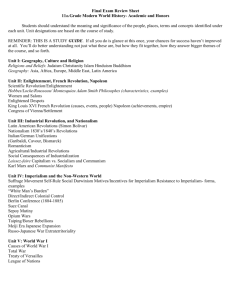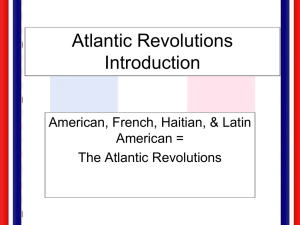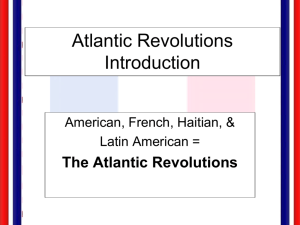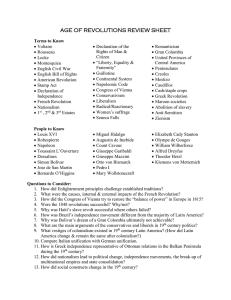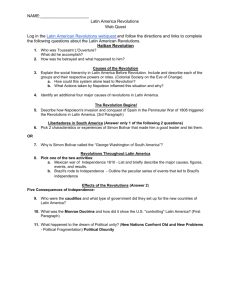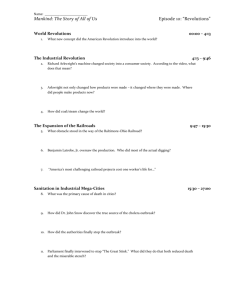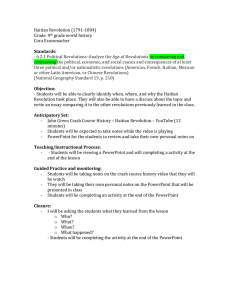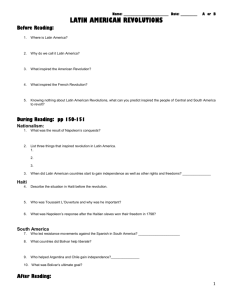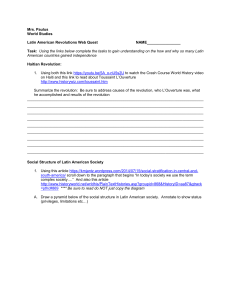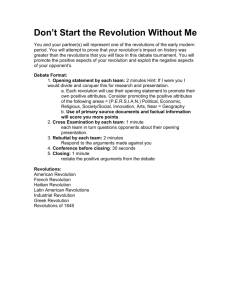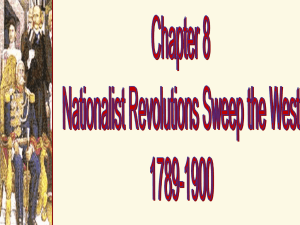Unit Study Guide
advertisement
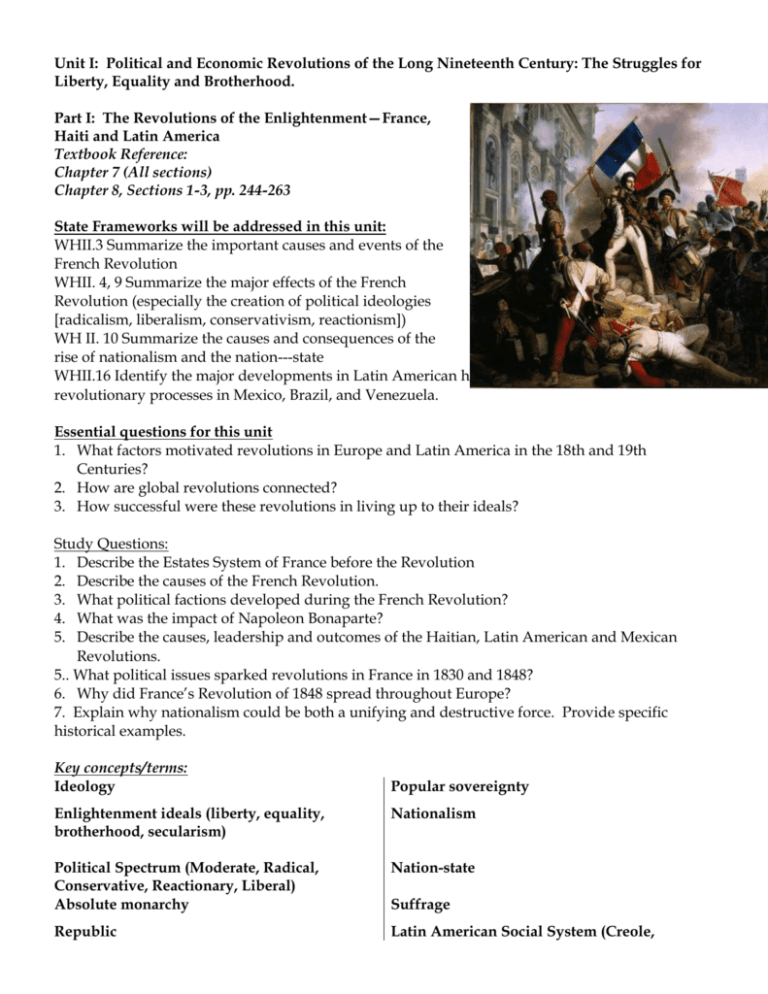
Unit I: Political and Economic Revolutions of the Long Nineteenth Century: The Struggles for Liberty, Equality and Brotherhood. Part I: The Revolutions of the Enlightenment—France, Haiti and Latin America Textbook Reference: Chapter 7 (All sections) Chapter 8, Sections 1-3, pp. 244-263 State Frameworks will be addressed in this unit: WHII.3 Summarize the important causes and events of the French Revolution WHII. 4, 9 Summarize the major effects of the French Revolution (especially the creation of political ideologies [radicalism, liberalism, conservativism, reactionism]) WH II. 10 Summarize the causes and consequences of the rise of nationalism and the nation---state WHII.16 Identify the major developments in Latin American history by comparing the revolutionary processes in Mexico, Brazil, and Venezuela. Essential questions for this unit 1. What factors motivated revolutions in Europe and Latin America in the 18th and 19th Centuries? 2. How are global revolutions connected? 3. How successful were these revolutions in living up to their ideals? Study Questions: 1. Describe the Estates System of France before the Revolution 2. Describe the causes of the French Revolution. 3. What political factions developed during the French Revolution? 4. What was the impact of Napoleon Bonaparte? 5. Describe the causes, leadership and outcomes of the Haitian, Latin American and Mexican Revolutions. 5.. What political issues sparked revolutions in France in 1830 and 1848? 6. Why did France’s Revolution of 1848 spread throughout Europe? 7. Explain why nationalism could be both a unifying and destructive force. Provide specific historical examples. Key concepts/terms: Ideology Popular sovereignty Enlightenment ideals (liberty, equality, brotherhood, secularism) Nationalism Political Spectrum (Moderate, Radical, Conservative, Reactionary, Liberal) Absolute monarchy Nation-state Republic Latin American Social System (Creole, Suffrage Estate System Peninsulares, Mulatto, Mestizo) Bourgeoisie Laissez-faire “Liberty, Equality, Fraternity” National Assembly Reign Of Terror People: Louis XVI Robespierre Simon Bolivar Father Miguel Hidalgo Toussaint L’Ouverture Napoleon Bonaparte Otto von Bismarck Documents: Estates Cartoon Cahiers de Doléances “Declaration of the Rights of Man and the Citizen” Miguel Hidalgo, “El Grito de Delores” Haitian Cahiers Simon Bolivar, “The Jamaica Letter” Project: Recipe for Revolution
